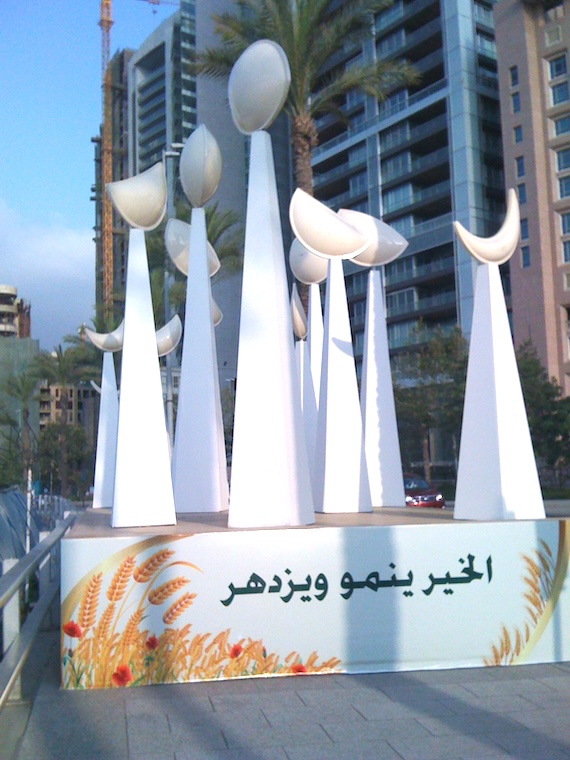Trabzon, Turkey (Special to Informed Comment, Feature) – The recent visit of Saudi Arabia’s Foreign Minister Prince Faisal bin Farhan to Lebanon on 23 January marks a critical moment for Saudi Arabia-Lebanon bilateral relations. This visit comes after years of strained relations between Saudi Arabia and Lebanon, driven by the ongoing rivalry between Saudi Arabia and Iran for regional influence. It is a first visit by such a high level of Saudi official in over a decade. The visit occurred during recent developments on both regional and global fronts which appear to have created an opening for Riyadh to re-engage with Beirut.
Iran’s influence in the region has faced significant obstacles in recent years due to Israel-Iran and Iran-US conflicts in Iran and elsewhere in the region. Hezbollah, long considered Iran’s proxy in Lebanon, has been weakened following a series of challenges. Israeli military operations and increased international scrutiny have limited Hezbollah’s operational capacity and strained its resources. Especially the assassination of Hezbollah’s leader Hasan Nasrallah was in particular importance in losing the momentum.
Additionally, the collapse of the Assad regime in Syria has left Iran overstretched, reducing its ability to project influence in Lebanon. These regional developments have been compounded by the beginning of US President Donald Trump’s second term, marked by his anti-Iran rhetoric and policies. Together, these factors have contributed to the gradual erosion of Iran’s foothold in the region, including in Lebanon.
Lebanon has long been a battleground for the cold war between Iran and Saudi Arabia. While Iran has exerted its influence through Hezbollah, Saudi Arabia has traditionally supported Sunni political factions, most notably the Hariri family. The visit of Prince Faisal bin Farhan occurred against this backdrop of waning Iranian influence and presented an opportunity for Saudi Arabia to bolster its position in Lebanon.
Domestic political shifts in Lebanon have also paved the way for improved Saudi Lebanese relations. After a two-year deadlock, the Lebanese parliament finally reached a decision on the presidency, electing Joseph Aoun as President. The two-year political deadlock was partly a result of obstruction of the process by Hezbollah and its ally Amal. However, they changed their mind and supported Aoun after their preferred candidate dropped out.
Aoun’s victory, backed by the U.S., France, and Saudi Arabia, marks a shift in Lebanon’s political landscape, with Saudi influence rising as Iranian influence wanes. Saudi leadership was among the first to congratulate him after he assumed the role. In a phone call, President Aoun reportedly stated that the Kingdom would be the first destination for him to visit, signaling appreciation for its support.

“Beirut,” 2012. © Juan Cole.
Shortly after taking office, President Aoun nominated Nawaf Salam as the next Prime Minister, tasking him with forming a government. Both leaders are seen as favorable to Saudi interests, marking a departure from previous administrations perceived to be closer to Iran. These political changes are widely viewed as a victory for Saudi Arabia and a sign of Iran’s diminished influence in Lebanese politics.
The significance of Prince Faisal’s visit is clear. It symbolizes Saudi Arabia’s commitment to supporting Lebanon’s stability while countering Iranian influence. For Lebanon, the visit signals a potential influx of much-needed economic support and investment, particularly as the country grapples with a severe financial crisis.
Saudi Arabia’s prior decision to halt aid to Lebanon due to Iranian influence underscores the importance of this renewed engagement. The resumption of economic support could focus on infrastructure, energy, or humanitarian initiatives, offering tangible benefits to Lebanon’s struggling population.
As Saudi Arabia reasserts its influence in Lebanon, the broader implications for the Middle East are worth considering. This move reflects a strategic recalibration by Saudi Arabia, aligning its foreign policy with the shifting dynamics of the region.
While Aoun has pledged that the Lebanese state will have a monopoly on weapons, analysts suggest disarming Hezbollah will be a long-term challenge. His immediate priorities include stabilizing Lebanon, implementing an Israeli-Hezbollah ceasefire, and securing funding for reconstruction, particularly in Hezbollah-dominated areas. Economic reforms will be necessary to unlock Gulf state financial support.
For Lebanon, it offers a glimmer of hope for stability and economic recovery, though significant challenges remain. The coming months will reveal whether this renewed relationship can bring about meaningful change for Lebanon and reshape the balance of power in the region. Ultimately, Saudi Arabia’s engagement in Lebanon could serve as a model for balancing regional rivalries while fostering local stability.


 © 2026 All Rights Reserved
© 2026 All Rights Reserved